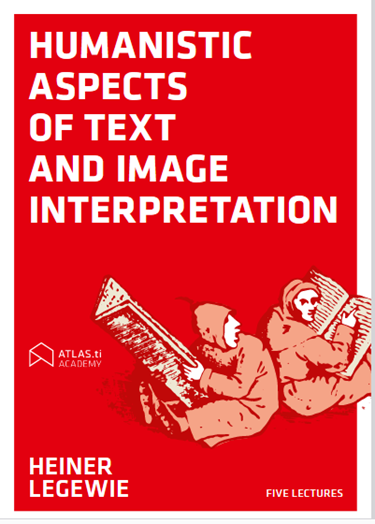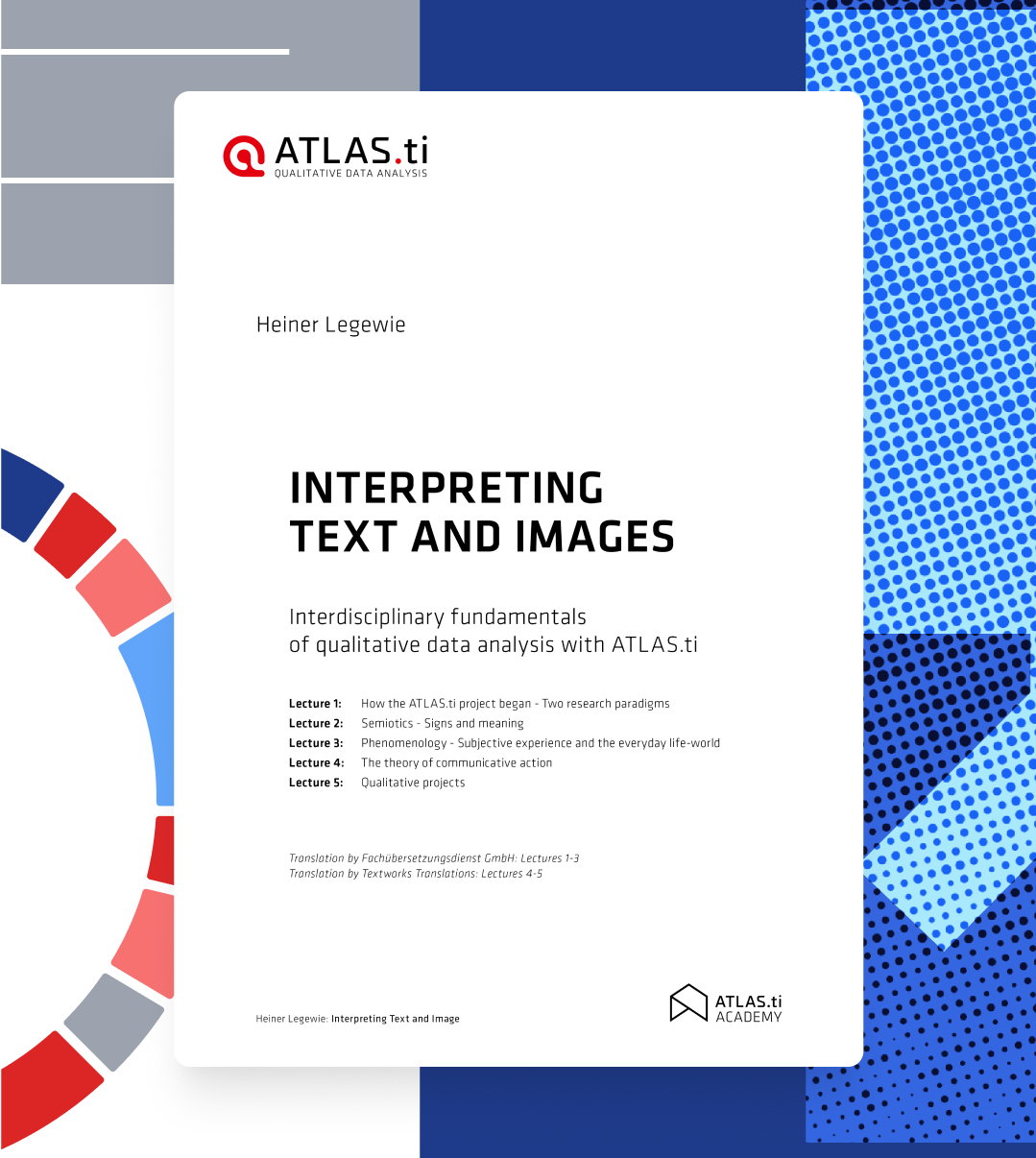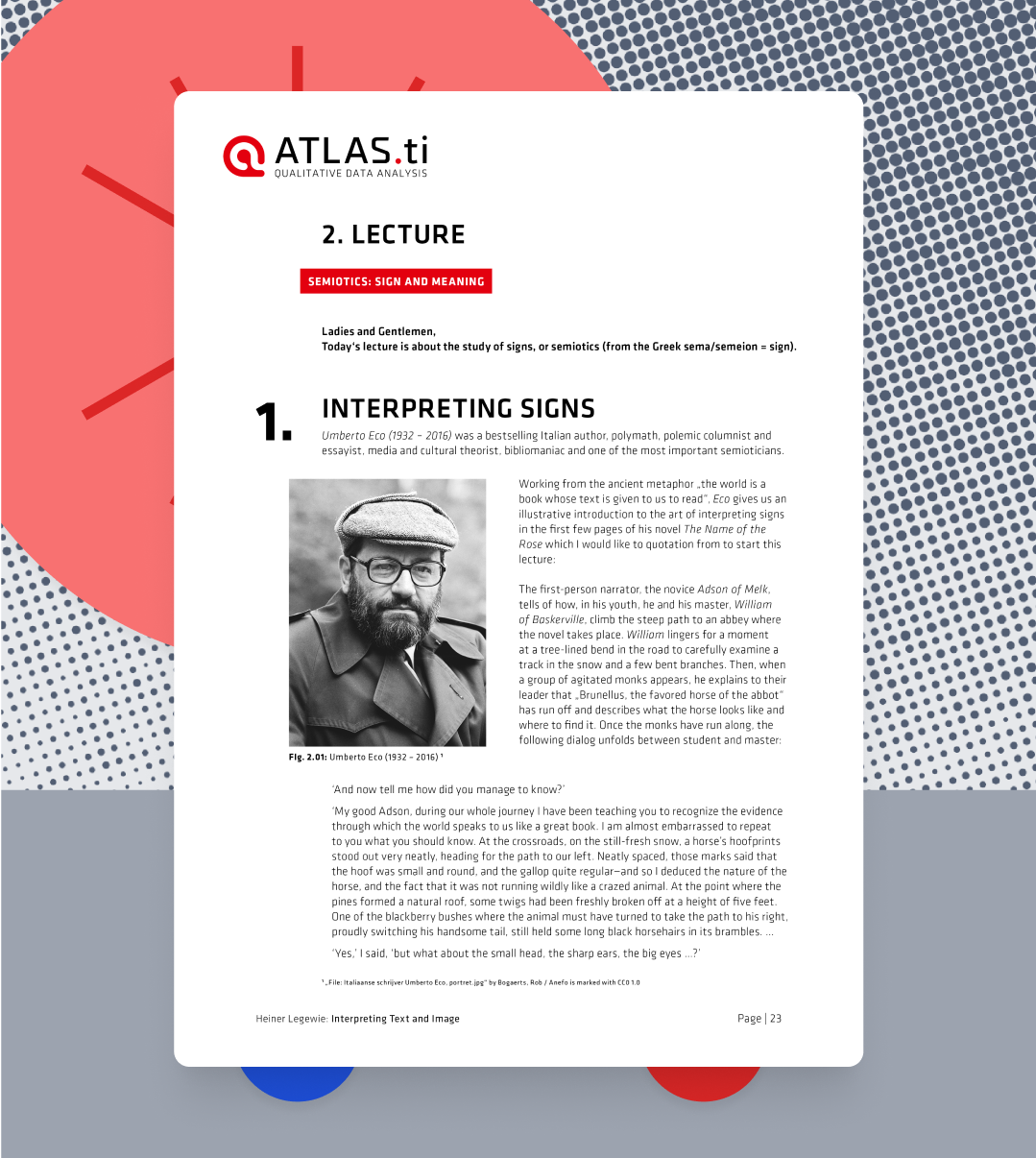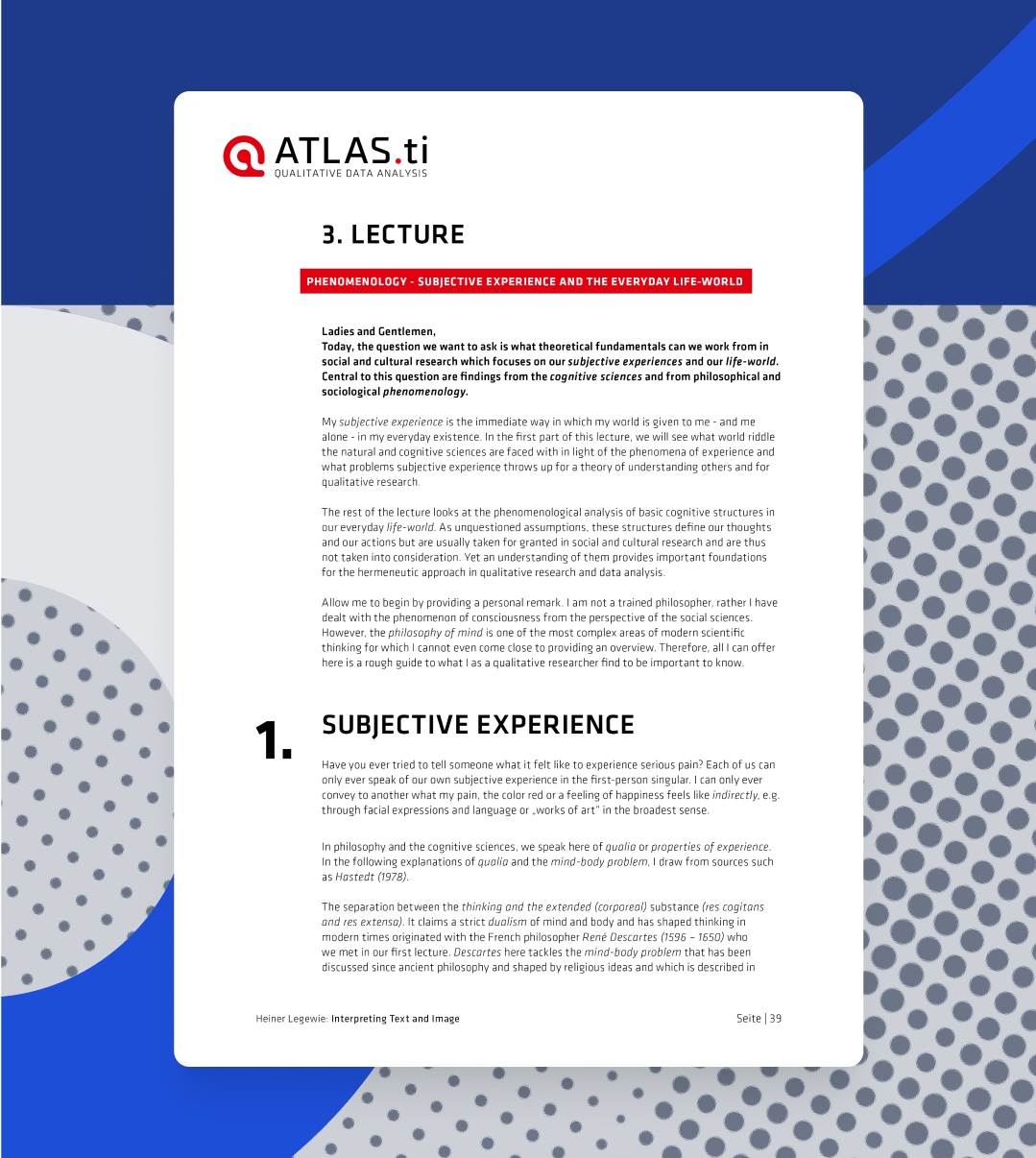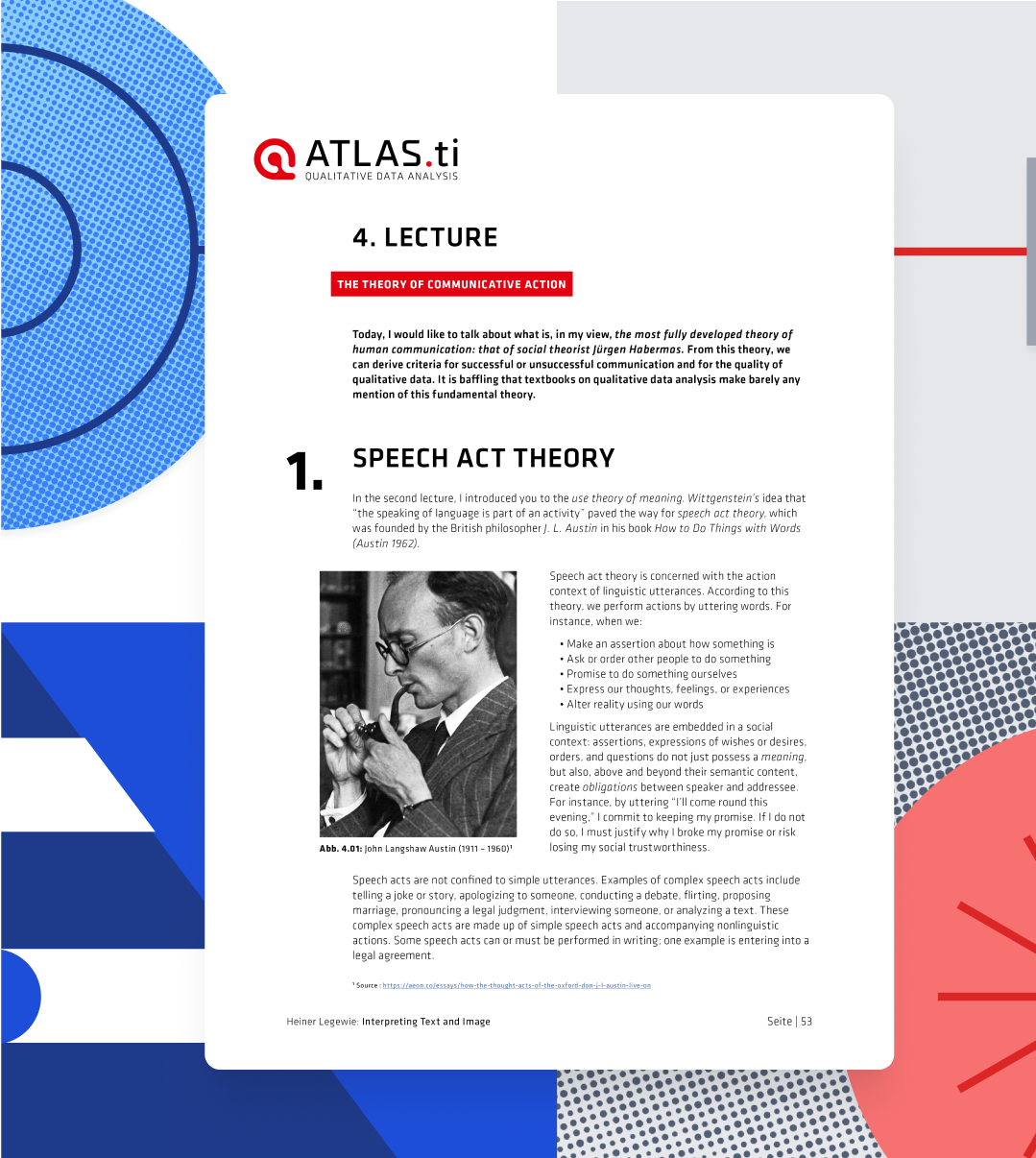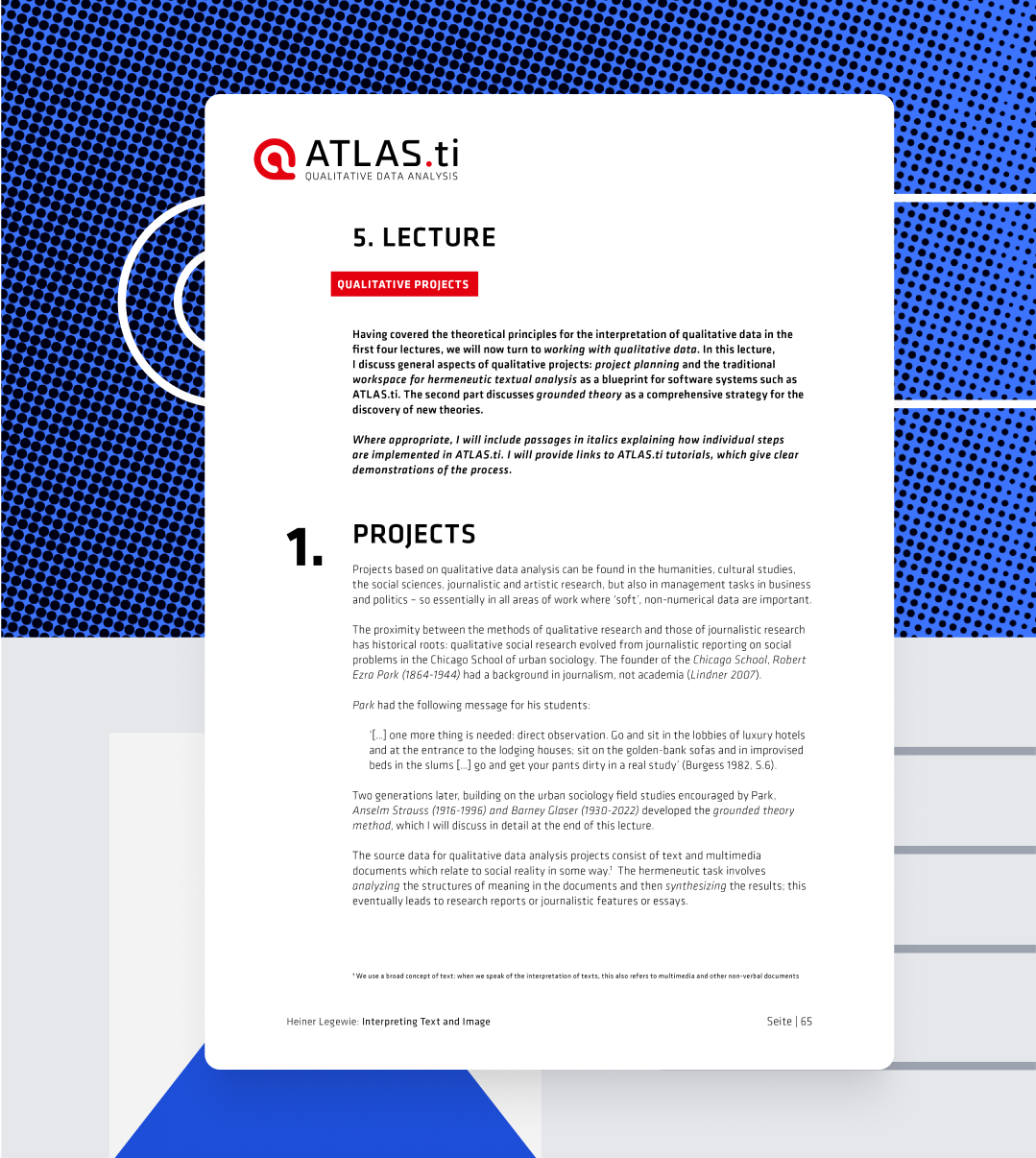Interpreting text and images: A lecture series by Heiner Legewie
What about?
In the 1990s, traditional text and image interpretation in the social sciences and humanities was transformed by the introduction of interpretation support systems such as ATLAS.ti. Today, these systems are undergoing rapid change through the latest AI developments, especially through Large Language Models in applications such as ChatGPT, Perplexity, Bing Chat, which trigger enthusiasm as well as criticism and anxiety among social scientists and humanities scholars.
It seems important today, therefore, besides studying the variety of interpretation methods, that we take a look at the philosophical foundations of the interpretation, not least in order to develop a deeper understanding of the potentials and limitations of the use of AI in interpretation work.
Who is the lecture series aimed at?
The present lecture series Humanistic Aspects of text and Image Interpretation deals with the prerequisites and foundations of human understanding and interpretaton.
It is aimed at
- empirical social scientists who collect and analyse non-numerical qualitative data in psychological, pedagogical, sociological, health science or other research contexts with the help of observation, interviews, video and multimedia
- People in the humanities, communication, culture, art, politics and history, in urban planning, in business, in investigative journalism, in creative research and art or in large-scale project management: everywhere qualitative data is involved when speech and visual documents come into play.
So if you work with linguistic or pictorial qualitative data in any of these fields, you will develop a deeper understanding of the basics of interpretation work through this lecture series, regardless of whether you work traditionally with “paper and pencil” or with software systems such as ATLAS.ti including the use of artificial intelligence.
What will you learn?
This lecture series is not about teaching the many individual methods of text and image interpretation, for which there are excellent introductions, handbooks and webinars.
Instead, I would like to take you on a journey through the interdisciplinary foundations of interpreting qualitative data - from hermeneutics, semiotics and phenomenology to the theory of communicative action.
The fifth lecture occupies a special place. Here the "philosophy" of qualitative projects is described; it is about the logic and strategies of discovering new insights. Finally, I outline the grounded theory as a comprehensive strategy for developing new theoretical concepts in a dialog with the empirical data.
My aim is to make this lecture series an exciting intellectual adventure and to provide you with a rich background knowledge of text and image interpretation. Along the way, you will gain insights into existential questions such as the position of consciousness in the material world or the prerequisites for understanding others and communication.
In all of this, I will endeavor to convey even sophisticated theoretical approaches in an understandable way.
All PDFs in English and German are available for download here.
Wenn Sie die Seite auf Deutsch lesen wollen, folgen Sie bitte diesem Link.


